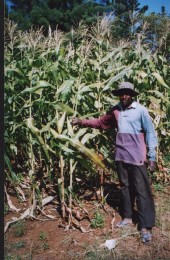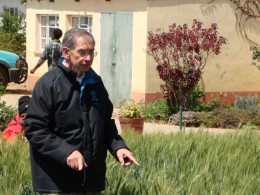We have been considering Key Indicators of Good Practice under the title The Poor deserve the Best and now come to the final 2 of 20.
11. Sustainability
Much charitable work relies on continual fund raising. Called Donor Dependency this makes a ministry very vulnerable. However, Donor Dependency introduces a measure of insecurity and puts the permanence of the ministry in doubt. It can also lead to the compromise of values in order to obtain funding. Further, Donor dependency may diminish the dignity of the ministry, but sometimes is a necessity.
To mitigate against this a thorough assessment should be made of the reliance on outside funding and how this may be reduced. Appropriate practice should then be implemented to make the ministry as self-sustainable as possible.
Clearly certain ministries are inherently unable to become financially independent from internal activity within the ministry as there is no product or service to ‘sell’. Where this is the case it may be beneficial to explore ‘special relationships’ with locally-based donors, such as businesses, or with other churches (local or distant) with whom there may be a relational commitment, rather than depending on the need for sustained fund-raising.

Another approach may be to make one part of the ministry ‘income-rich’ in order to subsidise another part. Some friends of mine, John and Alex Kpikpi in Ghana, started a school some years ago for fee paying children. Their intention has always been to reach their whole community but by first building an income stream from the fee-payers they were then able to introduce a system of bursaries for disadvantaged children. Creative thinking may make a similar strategy possible in other areas.
12. Scaling up and multiplication
Another aspect of sustainability of the benefits of a ministry may be seen in reproduction. A natural family ‘name’ is sustained by having children. A ministry can act similarly.


Although some ministries have clearly defined and appropriate boundaries most have the potential either to grow and be multiplied, or to be reproduced in other settings, bearing in mind the importance of sensitivity to context. For instance, it may be appropriate for one ministry to ‘give birth’ to a similar ministry in another part of a city. For example, Foundations for Farming (formerly Farming God’s Way) in Zimbabwe has been reproduced in over 40 locations within Zimbabwe and is also being applied successfully in several other African nations with great effect.
An awareness of such a possibility should encourage the ministry to keep careful records about its progress (which will anyway help with monitoring) and to seek networking contacts and opportunities to give training, which will be mutually beneficial.
